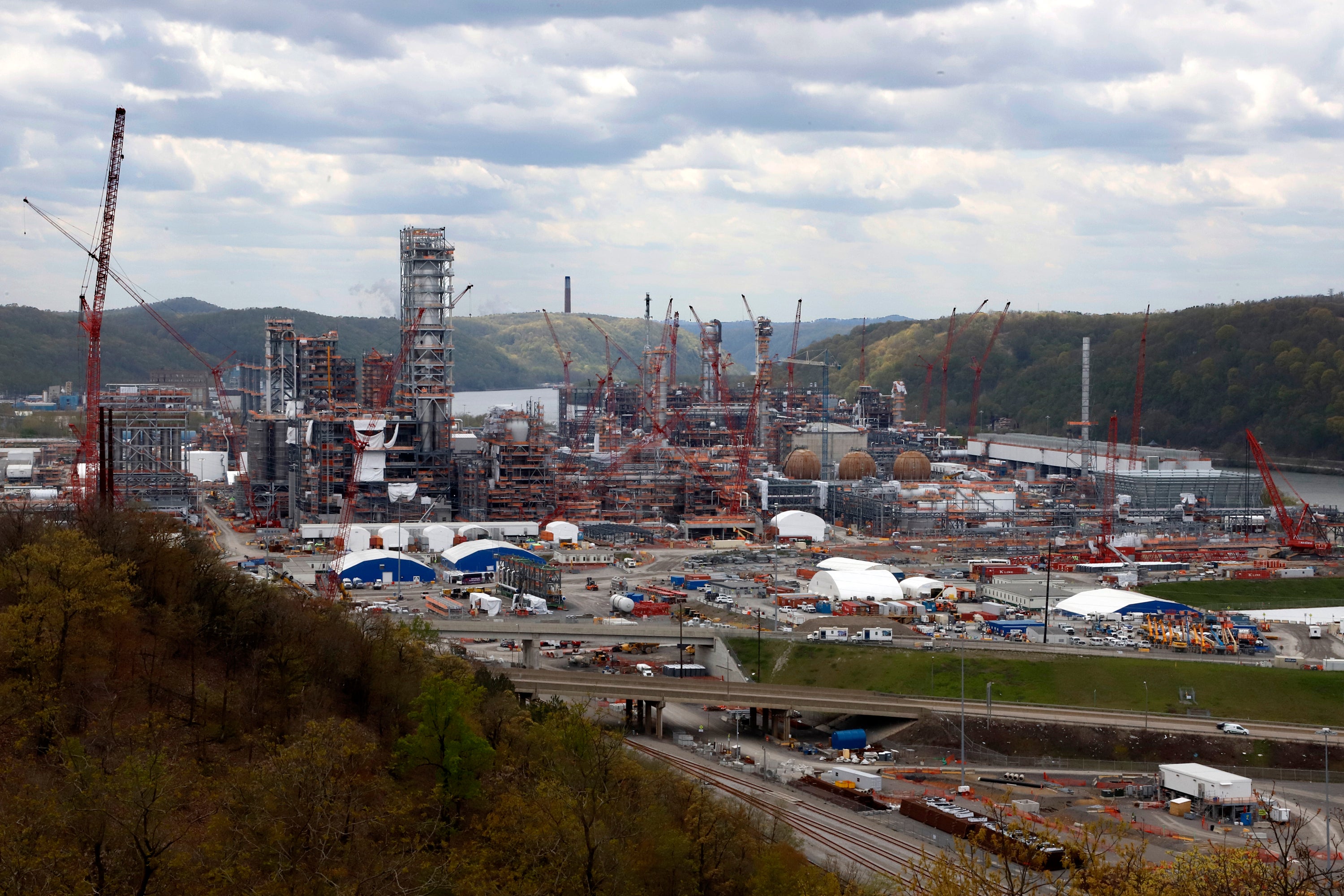After years of construction, Shell ethane cracker starts up
Years in the works, a massive petrochemical refinery in western Pennsylvania fed by the vast natural gas reservoir underneath Appalachia is fully operational

Your support helps us to tell the story
From reproductive rights to climate change to Big Tech, The Independent is on the ground when the story is developing. Whether it's investigating the financials of Elon Musk's pro-Trump PAC or producing our latest documentary, 'The A Word', which shines a light on the American women fighting for reproductive rights, we know how important it is to parse out the facts from the messaging.
At such a critical moment in US history, we need reporters on the ground. Your donation allows us to keep sending journalists to speak to both sides of the story.
The Independent is trusted by Americans across the entire political spectrum. And unlike many other quality news outlets, we choose not to lock Americans out of our reporting and analysis with paywalls. We believe quality journalism should be available to everyone, paid for by those who can afford it.
Your support makes all the difference.Years in the works, a massive petrochemical refinery in western Pennsylvania fed by the vast natural gas reservoir underneath Appalachia became fully operational Tuesday, oil and gas giant Shell plc said.
The refinery, built on the site of a former zinc smelter along the Ohio River some 30 miles (48 kilometers) northwest of Pittsburgh, will produce 3.5 billion pounds (1.6 billion kilograms) of polyethylene annually when it ramps up to full production by the second half of 2023, Shell said.
The refinery brings in ethane from natural gas wells and chemically “cracks” the liquid fuel by heating it in furnaces to create ethylene, which is used to produce everything from plastics to tires to antifreeze.
Shell, the British multinational oil and gas company headquartered in London, had projected to spend $6 billion on the plant, making it one of the largest — if not the largest — industrial developments in Pennsylvania. It said the final cost figure is proprietary.
The plant’s promoters have promoted it as the key to reindustrializing Pennsylvania, where many towns and cities have suffered from the loss of the steel and coal industries.
Environmental advocacy groups, however, have fought it and predicted that it will generate more plastic pollution, compounds that form smog and planet-warming greenhouse gases. Shell said it is using the best available technologies to try to minimize air pollution.
A leading gas exploration trade association, the Marcellus Shale Coalition, hailed the opening of the refinery, calling it an “historic day for Pennsylvania.”
The natural gas boom in the vast Marcellus Shale gas reservoir beneath Appalachia attracted Shell to the area. In 2012, the state signed off on a tax break of up to $1.65 billion over 25 years to lure it, and later issued air and water permits to Shell, which began construction in 2017.
The plant looks very similar to a gasoline refinery, with miles of pipes and large storage tanks. The core manufacturing and logistics area covers about 385 acres (186 hectares), with an overall site footprint of about 800 acres. It includes its own power generation and water treatment plants.
The plant is the first major polyethylene manufacturing complex in the northeastern United States, according to Shell.
Most ethylene production is on the Gulf Coast in Texas and Louisiana. Shell says the location gives it a competitive advantage, with more than 70% of the U.S. polyethylene market within 700 miles (1,127 kilometers) of Pittsburgh.
Annual U.S. ethane consumption has doubled in the past decade as demand for ethylene has grown. Ethane consumption recently rose above 2 million barrels per day, according to the Energy Information Administration, an arm of the U.S. Department of Energy.
Shell's plant in western Pennsylvania is estimated to add 96,000 barrels per day of ethane feedstock capacity, the agency said.